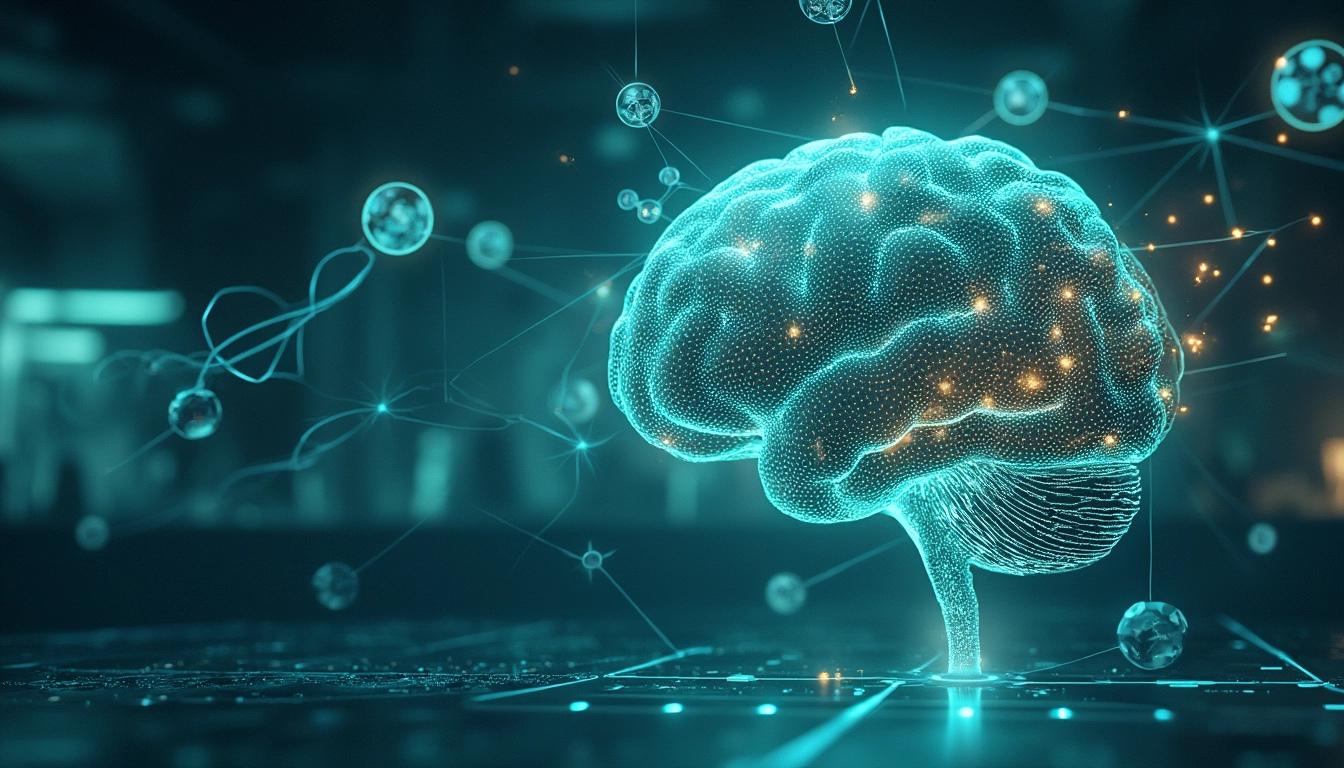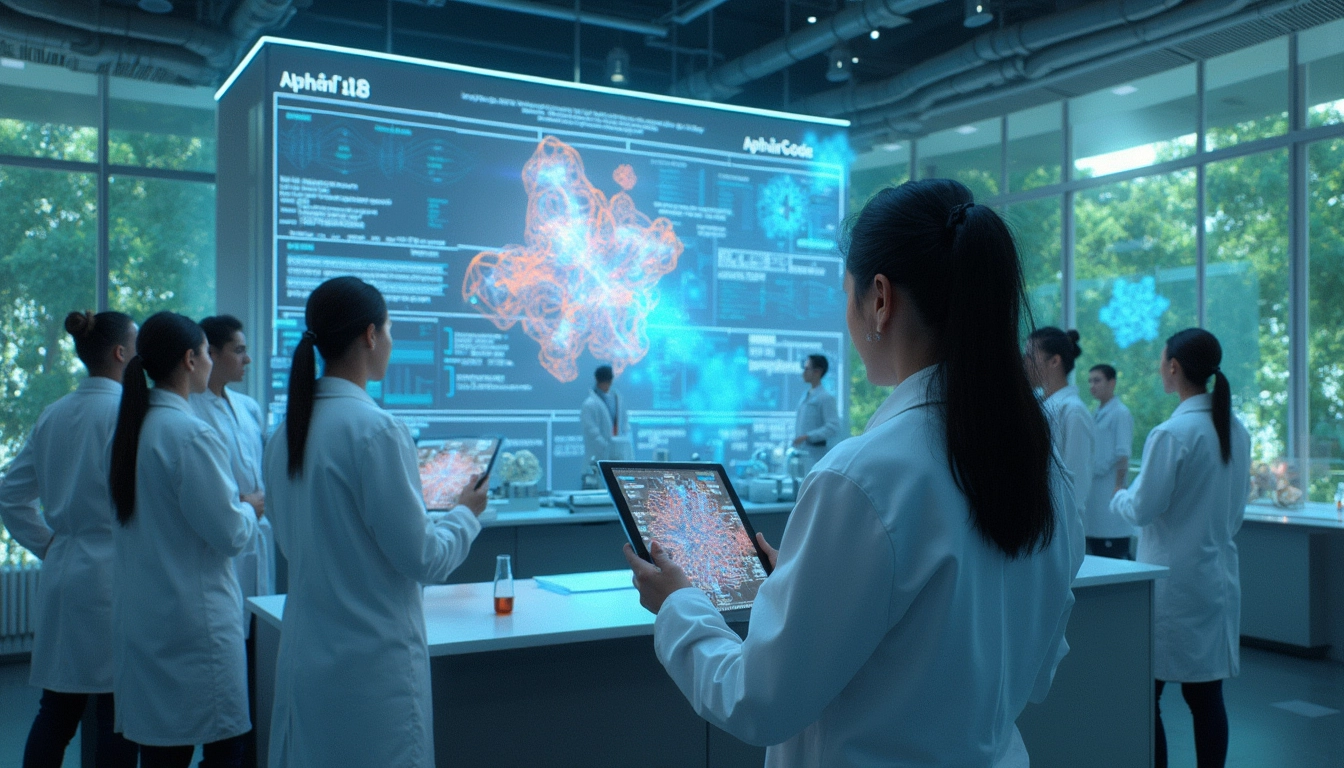
AI Breakthroughs Revolutionizing Scientific Research Trust and Ethics
AI’s journey towards scientific credibility is reshaping our approach to research and innovation. As AI systems like Google DeepMind make groundbreaking advances, they’re not just accelerating scientific discovery but also raising important questions about trust and reliability in the age of artificial intelligence.
Key takeaways:
- AI has condensed millions of years of scientific research into a few years
- Neuroscience and AI development share a symbiotic relationship, inspiring each other
- AI models like Gemini are outperforming human experts in various benchmarks
- Responsible AI development prioritizes ethics and safety
- Transparency and accountability are crucial for building trust in AI
Table of Contents
AI’s Transformative Impact on Scientific Research
The speed at which AI is revolutionizing scientific research is nothing short of remarkable. In just a few years, AI advancements have condensed hundreds of millions of years of scientific inquiry into a fraction of the time. A prime example of this acceleration is AlphaFold, an AI system that has predicted the 3D structures of 200 million proteins – a feat that would have taken human researchers decades to accomplish manually.
This breakthrough is particularly crucial for understanding complex diseases like Alzheimer’s and Parkinson’s. By rapidly decoding protein structures, AI is paving the way for more targeted drug development and a deeper comprehension of these devastating conditions. The impact of AI on scientific research isn’t just about speed; it’s about opening doors to discoveries that were previously unimaginable.

The Neuroscience-AI Symbiosis
The relationship between neuroscience and AI development is a fascinating two-way street. Key figures like Donald Hebb and Geoff Hinton have played pivotal roles in bridging these fields. Neuroscience has not only validated AI techniques but has also inspired new algorithms that mimic the brain’s functioning.
One striking example is the deep-Q network (DQN), which replicates the brain’s “experience replay” process. This AI technique allows systems to learn from past experiences, much like the human brain consolidates memories during sleep. This symbiosis between neuroscience and AI is pushing the boundaries of both fields, leading to more sophisticated and brain-like artificial intelligence systems.
Pushing the Boundaries of AI Capabilities
Recent developments in AI have seen systems surpassing human experts in various benchmarks. Google DeepMind’s Gemini models have shown remarkable performance across a range of tasks. For instance, AlphaCode 2 has demonstrated the ability to solve 1.7 times more programming problems than its predecessor, outperforming 85% of competition participants.
Bard, powered by Gemini Pro, exhibits improved understanding, reasoning, and coding abilities. These advancements aren’t just academic achievements; they’re paving the way for AI systems that can tackle complex real-world problems with unprecedented efficiency. As AI continues to evolve, we’re witnessing a shift from narrow, task-specific AI to more versatile and capable systems.
Responsible AI Development: Ethics and Safety First
As AI capabilities grow, so does the importance of responsible development. Google DeepMind has been at the forefront of this approach, establishing internal governance principles as early as 2010. These principles guide the ethical development and deployment of AI technologies.
A crucial aspect of responsible AI development is the practice of cross-functional red-teaming and engaging external experts for risk mitigation. This approach ensures that potential risks and ethical concerns are identified and addressed before AI systems are deployed. Moreover, there’s a strict commitment to avoiding involvement in surveillance or weapons systems, underlining the importance of using AI for beneficial purposes only.
I’ve found that automating the process of responsible AI development can be incredibly helpful. Make.com offers powerful tools for setting up workflows that can monitor and flag potential ethical issues in AI projects, ensuring that safety and responsibility remain at the forefront of development efforts.
Building Trust Through Transparency and Accountability
Trust is the cornerstone of AI adoption, and it’s built on a foundation of transparency and accountability. Google DeepMind has emphasized the importance of being open about AI applications and development processes. This transparency extends to partnerships with stakeholders, including policymakers, academics, and the public.
Accountability in AI development means taking responsibility for the systems created and their impact on society. It involves a commitment to safe deployment and ongoing consideration of ethical implications. By maintaining high standards of accountability and engaging in open dialogue, AI developers can foster public trust in AI technologies.
The Future of AI: Balancing Progress and Responsibility
As we look to the future of AI, the focus remains on achieving breakthroughs while upholding ethical standards. The potential for AI to solve complex global challenges is immense, from climate change to healthcare. However, realizing this potential requires a delicate balance between innovation and responsibility.
Ongoing dialogue between AI developers, policymakers, and the public is crucial for navigating the ethical landscape of AI. As AI becomes more integrated into our daily lives, it’s essential to maintain a critical perspective on its development and deployment. By fostering an environment of open discussion and collaboration, we can ensure that AI’s scientific path leads to a future that’s both innovative and trustworthy.
Sources:
Google DeepMind
AI and Neuroscience: A Virtuous Circle
Interview with Anna Koivuniemi of Google DeepMind
2023: A Year of Groundbreaking Advances in AI and Computing



9 thoughts on “AI Breakthroughs Revolutionizing Scientific Research Trust and Ethics”